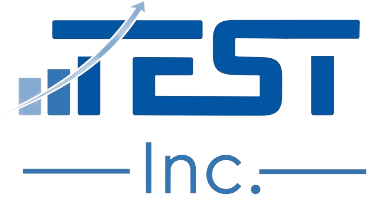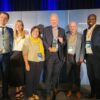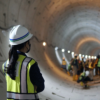At Everything Digital, we are committed to supporting and inspiring women in engineering.
The latest industry figures from the Diversity Agenda Accord Insights 2024 show that 40% of general staff identify as women, with 31% in senior leadership roles. While these numbers have positively increased over the years, we recognise the ongoing need for improvement and continually review our systems and practices to ensure gender equity, diversity, and inclusion.
Our strength lies in our diversity, forming teams that together create and sustain a better world. Partnering with university networks, ED aims to inspire future generations to pursue careers in engineering, actively supporting networking events, mentoring, and internships. Our dedication to gender equity is highlighted by our Gender Tick accreditation, reflecting our ongoing efforts in promoting gender inclusion and pay equality.
Transparency in pay is crucial, and our Group Pay Transparency Report showcases our commitment to pay equity. We also publish our Parental Leave and Gender Pay Gap data, ensuring equity and transparency for all genders. For more information, check out: DEIB – Everything Digital
We recently spoke with several pioneering women at ED who shared their engineering origins, inspirations, and advice. Here’s what they had to say:
Simonne Eldridge, Executive Leader – Clients + Brands

The Power of Saying Yes
My first project while at university was a drill and blast tunnel – what 20-year-old woman doesn’t like blowing things up. I’ve since been involved in bulk water transfer schemes in Africa and the Middle East, water treatment in the UK and massive waste infrastructure projects in Hong Kong, New Zealand and Australia. About 5 years into my career, I was asked to go to Hong Kong for a few weeks, and in saying yes, I ended up working on infrastructure projects there for 9 Years. That one ‘yes’ has opened so many doors for me.
Pivotal Connections
Engineering is highly technical, but it needs to be people and environment centric. Connect with people and learn how to be yourself.
Te Miringa Panapa, Water Resources Engineer

Integrating Technical Expertise with Community Engagement
As an engineer, it’s important to recognise the society and environment you live in, solutions can’t just be technically correct, they need to fit the community you’re working in. At ED, I’ve found my space working on technical design and community engagement – specifically working with Māori communities. When I started my career, I didn’t know that it was possible to create a job in this space where I was able to pursue multiple passions at once. One of my passions includes becoming fluent in Te Reo Māori, a kaupapa close to my heart, this skill set is also becoming increasingly valued in the industry. Te ao Māori is in everything we do and being able to connect with iwi and understand mātauranga practices as an engineer increases your capability tenfold.
Overcoming Challenges and Embracing Strengths
As a young woman starting out in the engineering industry, I have often been the youngest, most inexperienced and only female in the room. When I go to site, contractors often look to my male counterparts to interact with, even if I have more seniority. However, I am lucky enough to work in a team of mostly female professionals, and having this support network has empowered me both in the workplace and in everyday life. My biggest advice is to be sure in who you are – you have just as much right to be in the room as anyone else. As women, we bring a different perspective to the table and are often better communicators, not only can we solve engineering problems – but we also communicate those solutions effectively.
Katerina Howard, Technical Director – Tunnel Engineer

Tunneling Origins
A turning point for me came at university, I did an exchange year at the National Technical University of Athens in Greece. A field trip visiting tunnels in construction on the Egnatia Odos Project got me hooked to tunnelling, and learning fluent Greek while studying prestressed concrete and steel structures was fun too!
Since then, I’ve worked on a massive hydroelectric scheme in Iceland which comprised of a 30km long headrace tunnel, we would drive for an hour inside a small personnel carrier to get to the work front, deep underground! Recently I was part of the team designing and building Auckland City Rail Link, working on the Karangahape Station.
Enhancing the Lives of Others
Every piece of infrastructure inadvertently has an impact, whether it’s a rural road tunnel providing a new resilient route, a stormwater tunnel improving the cleanliness of our beaches or an underground station on a route that makes mass transport more accessible and faster, these all enhance lives of others.
What Possibilities come from Diversity?
I think the diversity of thought is massively important, it gives us a possibility to challenge set ways of thinking and provides different perspectives. Projects can achieve better outcomes if diversity is embedded in team structures.
Dilys Fong, Transport Engineer

From the Classroom to the Transport Sector
I have a background in classical singing, physics, and maths. The first time I left university, I went to work as a secondary school teacher, and I loved it. Young people are inspirational in how they learn, grow, care about each other and the planet, and invest in their future. I told all my physics students to study hard so they could become engineers because good infrastructure is critical to thriving communities. So, I took my advice and went back to uni. I work in transport because everyone has an opinion, and our collective social, economic, and environmental well-being depends so much on transportation.
Why We Need Diversity
Engineering isn’t just about numbers and calculations. A diverse range of skills are needed to deliver positive outcomes, including communication, writing, and people skills. We also plan, design, and build for human beings with different aspirations, needs, and stories to tell. That’s why we need diversity – to reflect the communities we are trying to serve, with teams that are enriched by the many skills, strengths, and perspectives we all offer. I’d say to anyone, especially wāhine and those who are non-binary and considering a career in engineering – come and join us!






